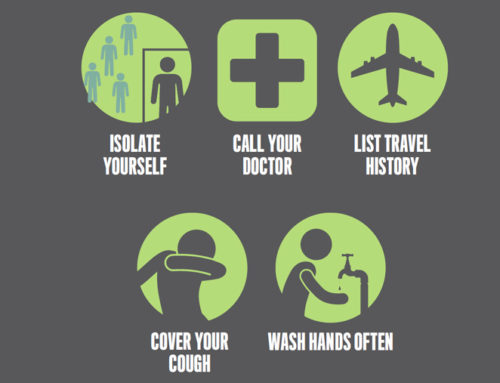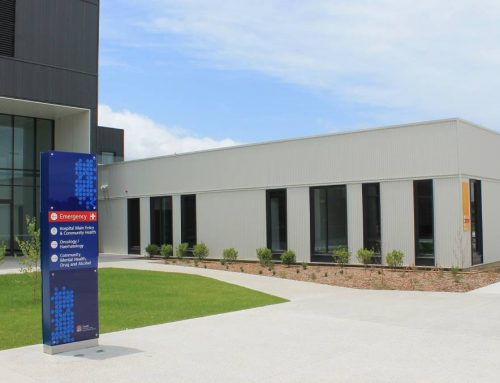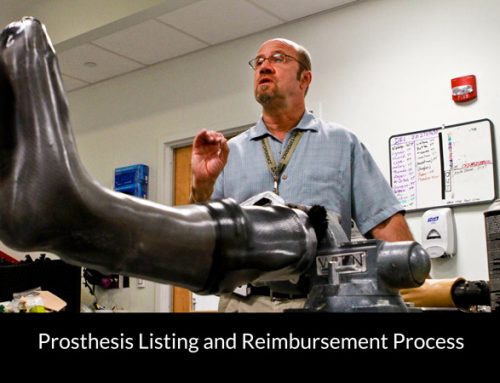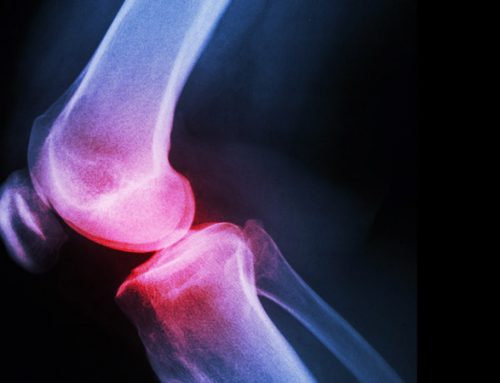New Initiatives for Motor Accident Victims
The Motor Accidents Compensation Act 1999:
Implications for Orthopaedic Surgeons
The information contained below was scanned from an original document supplied by the NSW Motor Accidents Authority and is reproduced here for the information of ASOS members. (September 2000).
- Background
- Medical Disputes
- The MAS Disputes Panel
- Disputes about permanent impairment
- The MAS Impairment Assessment Panel
- Settlement of Claims
- Key issues for orthopaedic surgeons
Background:
The new Motor Accidents Compensation Act was introduced in response to community concern at the increasing price of green slips, and dissatisfaction reported by claimants under the previous scheme. The new Act applies to claims arising from accidents occurring on or after 5 th October 1999, and introduces a number of major changes to the compulsory third party scheme in NSW.
The intention is to reduce the litigation rate in CTP claims and to direct the available funds to the more seriously injured.
Under the new legislation, the role of the Motor Accidents Authority in regulating the profits and procedures of insurers has been strengthened. Specific guidelines for insurers’ handling of claims, identification and management of rehabilitation and payment of accounts have been issued, and a new compliance branch has been established within the Motor Accidents Authority to audit and monitor insurers.
Key components of the Act are the two new dispute resolution services, established within the Motor Accidents Authority, independent of the insurers and the courts. These provide for the settlement of claims (“CARS”) and the resolution of medical disputes (“MAS”).
A new Claims Advisory Service (“CAS”) has also been established to provide procedural advice to all parties, via a hot-line service on 1300 656 919 or over the counter at the George Street office. Assistance to pursue claims through these new services will be provided to any claimants, solicitors, health professionals and insurers.
Medical Disputes:
The new medical assessment service (MAS) can assess disputes of the following types:
- whether treatment provided or to be provided is reasonable and necessary under the circumstances;
- whether any such treatment relates to the injuries sustained in the subject accident;
- whether an injury has stabilised;
- the degree of permanent impairment of the injured person as a result of the injuries sustained;
- the degree of impairment of earning capacity of the injured person as a result of the injuries sustained.
MAS will only become involved where there is a disagreement between a claimant and insurer about one of these issues, and one of the parties has referred the matter to MAS. Either party may make application and attach any documents they consider relevant. The other party has a right of reply and may also attach any documents. All the information submitted in relation to the dispute is made available to both parties.
MAS will recruit two separate panels of experts to assist in resolving disputes. The “MAS Disputes Panel” will consider disputes relating to treatment and earning capacity. A separate panel of assessors, the “MAS Impairment Assessment Panel” will determine disputes about permanent impairment and stabilisation of injuries.
Disputes about treatment:
Treatment is broadly defined, to include all types of medical and dental interventions, therapy, rehabilitation, attendant care and support services such as domestic assistance, case management, job-seeking assistance, etc.
MAS will assess each dispute and determine the appropriate way to proceed. The parties may beasked to an informal meeting or mediation, to resolve the dispute. These meetings may include the service providers, if the parties both agree to allow this. It is hoped that many disputes about treatment and rehabilitation will be resolved in this way.
Where applicable, MAS may refer the matter to an appropriate expert from the “MAS Disputes Panel” for assessment in order to resolve the dispute.
It is anticipated that the majority of MAS treatment disputes will relate to post-acute rehabilitation and ongoing therapy or support services, where continuing costs are often involved and there may be a need to review progress, outcomes or needs. Some disputes may also arise regarding acute care or surgery – an example may be where spinal surgery has been recommended for a claimant, but the insurer refuses to meet the costs. MAS would refer disputes involving orthopaedic surgery or neurosurgery to an orthopaedic surgeon or neurosurgeon on the panel.
This panel will not be asked to prescribe treatment or specify treatment protocols for certain types of injury. Panel members will become involved only where an insurer disputes that a specified treatment is reasonable and necessary, or that it is accidentrelated.
The panel member will review all the information, and in most cases will examine the claimant. Consultation will usually take place in the normal rooms of the doctor or therapist. A Certificate will be issued which will state the decision, with an accompanying full report outlining all findings and the reasons for the decisions. The report is provided to both parties to the dispute.
If either party believes that a serious error or omission has occurred, they can apply for the decision to be reviewed by a panel of three experts, to determine if the decision was “incorrect in a material respect”. The review panel would consist of relevant experts from the MAS Disputes Panel who had no previous involvement in the case.
The MAS Disputes Panel:
Because this panel will be considering disputes about treatment, MAS will recruit a large panel of approximately 100 experts in various specialities. All panel members must be currently involved in providing treatment, and will be appointed to review disputes within their specific areas of expertise. For example, medical specialists and therapists have been appointed with specific expertise in brain injury, musculo-skeletal injury, paediatrics and geriatrics. Surgeons will be sought with specific expertise in spinal injuries, shoulders, knees, hands, etc. Recruitment of this panel will be completed by the end of this year. Members of this panel may also assess disputes regarding earning capacity, but thev will not be asked to assess the extent of permanent impairment.
Recruitment of appropriate experts with excellent qualifications and the esteem of their peers will be critical to the success of this new service. For this reason, specific selection criteria and procedures have been set in consultation with the relevant Royal Colleges, professional and academic bodies, who have also been asked to nominate esteemed members of the profession to assist in the selection process. The Australian Orthopaedic Association and the Royal Australasian College of Surgeons have been invited to comment on the selection criteria and to recommend selection committee members.
MAS is keen to ensure that the service provided reflects the highest professional standards, is truly independent, and has the confidence of the health professions, insurers and lawyers. MAS has been delighted by the strong interest shown to date by many highly esteemed specialists who have been enthusiastic about contributing to this new service.
MAS provides service not previously available, which will allow an independent review by experienced clinicians of the decisions made by insurers in relation to treatment and rehabilitation. The service provides an alternative to the situation under the previous scheme, where “stalemates” often developed which resulted in claimants being denied treatment; insurers refusing to pay for services without providing their reasons; claimants being subjected to multiple medico-legal assessments; reports being tendered which were biased or derived from incomplete information; and final decisions on clinical issues being made by judges and lawyers.
Disputes about permanent impairment:
Theses disputes will be assessed by a separate panel of experts, to be recruited next year.
The new Act restricts entitlement to claim for non-economic loss, also known as compensation for “pain and suffering” or “loss of enjoyment or amenities of life”, to those who have a permanent whole person impairment which exceeds 10%. Impairment is to be assessed in accordance with the American Medical Association Guides to the Evaluation of Permanent Impairment (4th edition) (AmMA4) and the MAA Impairment Assessment Guidelines. This method of assessment considers impairment, rather than disability. Pain and symptoms are not assessed separately, but are taken into account in determining the appropriate category of impairment.
The MAA Impairment Assessment Guidelines were the result of a review of the AMMA Guides by a reference group of Australian expert clinicians. They identified areas which required clarification or adaptation to suit the context of road trauma. In most instances the provisions of the AmMA4 have been adopted in full, but some specific changes have been made. For example, the reference group agreed that range of movement should not be seen as a valid indicator of the extent of spinal impairment, particularly when assessed in a compensible context. Range of movement assessment is, of course, considered a valid means of assessing injuries to other joints, such as shoulder, knee and hand injuries.
Those whose injuries result in a physical or psychiatric injury which exceeds 10% whole person permanent impairment are entitled to present a case as to their pain and suffering and non-economic losses sustained, and their award will be determined according to common-law principles. There is no scale equating the actual percentage impairment with a dollar award. Therefore there is no need to assess all injuries in order to ascertain a total impairment figure – all that is needed is to ascertain whether the 10% threshold has been exceeded or not.
Those whose injuries did not result in an impairment exceeding 10% will not be able to claim for non-economic loss, but they are still fully entitled to claim for their past and future treatment, rehabilitation and care expenses, and their past and future wage losses. For example, a claimant suffering chronic pain syndrome following a relatively minor soft-tissue injury may not exceed the 10% permanent impairment threshold, but still may be compensated for future incapacity, rehabilitation programs and domestic assistance.
The adoption of this method of assessment is intended to ensure greater consistency in awards and to direct the available funds towards those who sustained more serious injuries.
The MAS Impairment Assessment Panel will not assess permanent impairment in every case. MAS will only become involved where there is ‘a dispute between the parties as to whether an injured person’s injuries exceed the 10% threshold, or whether the injuries have stabilized.
Either party may still seek medico-legal opinions from doctors on various issues, including the extent of permanent impairment, as in the past.
It is anticipated that, in cases of serious injury, the parties will generally agree that the threshold is exceeded, and there will be no need for a MAS assessment. MAS is therefore likely to see only the “borderline” cases.
All applications to MAS for impairment assessments will be referred to an appropriate member of the MAS Impairment Assessment Panel, who will review all available information and assess the claimant. . The assessor will issue a Certificate which will indicate only whetherthe impairment exceeds 10% or not. The accompanying report will show how this decision was reached and will refer specifically to the appropriate pages of the AMMA and MAA Guides.
Decisions regarding permanent impairment and stabilization made by MAS are binding, and can only be overturned if a court finds that a breach of procedural fairness has significantly disadvantaged one of the parties.
The MAS Impairment Assessment Panel:
The assessors who will determine these disputes must have completed training in both the use of the-AMA Guides (4th edition) and the MAA Impairment Guidelines. This training is currently being developed and will be offered at the University of Sydney, via a series of modules relating to the various body systems defined in the AMA Guides, and including a core module which all assessors will need to complete. The first course is scheduled for November 2000 and will offered again throughout 2001.
The MAS Impairment Assessment Panel will therefore not be recruited before approximately mid-2001. Successful applicants will form a panel of less than 50 specialists who will be appointed to conduct assessments within specified body systems.
Completion of the relevant modules of the above training courses will be a prerequisite, but will not guarantee appointment to the MAS panel.
Applicants will also be required to sit an MAA application test, which will examine the competency of applicants in assessment of impairment in the nominated body systems. Further selection criteria will be developed in consultation with relevant professional associations. A minimum of 5 years post-specialist qualification clinical experience and evidence of commitment to continuing professional development will be required.
Applications will be sought from interested medical practitioners through mail-outs to attendees at the training courses, and also via mail-outs to members of the relevant professional colleges and through advertisements in the Sydney Morning Herald.
Members of the Impairment Assessment Panel will not be asked to assess disputes about treatment, which would be referred the Disputes Panel discussed above. There may be some assessors appointed to both panels, and some impairment assessors may also be accredited to conduct assessments of earning capacity for MAS.
An “interim panel” has been appointed, with the approval of the MAS Users Group, to conduct assessments of impairment until the final panel is recruited next year. This is comprised of the NSW members of the reference groups who assisted in the development the MAA Impairment Guides.
Settlement of Claims:
The Claims Assessments and Resolution Service (CARS) is available to assess the majority of claims. Complex cases will be exempted from CARS, such as those involving disputed liability, injured minors or catastrophic injuries, and these cases may proceed to court. All claimants may still settle their claims by agreement with insurers independently, but where agreement on settlement cannot be reached, either party can refer the matter to CARS.
A panel of experienced personal injury lawyers will assess these cases. All relevant documents will be made available to all parties and the assessor will determine the appropriate award. . If the claimant accepts the award, this is binding on the insurer. If the claimant does not accept the award they can proceed to court, but cost penalties will apply if the court does not award them at least 20% more than the award they rejected.
Doctors will not be required to attend these settlement assessments and will not be called to give evidence. It is anticipated that here will less argument about medical opinions heard by the claims assessors and the courts under this scheme, because medical issues in dispute will have been assessed by MAS. Any issues which arise at settlement assessments which are still unresolved can be referred by the claims assessor or the court to MAS for assessment, and the settlementassessment will be adjourned until the MAS decision is received.
The majority of straightforward cases and less serious injuries will therefore be settled without the need for costly court hearings and associated delays. Claimants will be able to settle their claims without legal representation, and the Claims Advisory Service (CAS) will assist unrepresented claimants and other parties through the process.
Treating surgeons will still be asked to provide reports to insurers or claimants, and either party may still seek medico-legal opinions from surgeons, as in the past.
All claimants are entitled to claim for their past treatment, rehabilitation, care and associated expenses, and any lost income resulting from their injuries. Those who will require future treatment, rehabilitation, care or associated services will be awarded costs to cover these expenses, and those whose future earning capacity will be impaired as a result of their injuries will also be compensated. This is as it was under the previous scheme. The new provision relates only to the entitlement to “non-economic loss”, which is restricted to those whose injuries have resulted in a whole person permanent impairment exceeding 10%.
Key issues for orthopaedic surgeons:
- MAS will recruit two separate panels.
- The “MAS Disputes Panel” will assess disputes about treatment. Applications for appointment to this panel are currently being sought from surgeons who are involved in providing treatment.
- The “MAS Impairment Assessment Panel” will determine whether permanent impairment exceeds the 10% threshold, in cases which are disputed and referred to MAS. This panel will not be recruited until next year.
- There is no intention to prescribe or sanction particular treatment regimes.
- Treatment issues will only be determined by MAS where an application has been made by a claimant or an insurer and there is a dispute as to whether specified treatments or services are reasonable and necessary, or whether they are related to the accident.
- Such issues will be determined by mediation or by referral to an appropriate expert from the MAS panel, who will review all available information and examine the claimant before making a decision on the specific issue in dispute.
- Panel appointees have been approved by the relevant professional bodies and endorsed by a committee of lawyers, barristers and solicitors as being highly qualified, esteemed within their profession, impartial and independent.
- Decisions made by panel assessors will be accompanied by a full report outlining all findings and the reasons for the decision, which will be available to both parties.
- Insurers and solicitors will still request opinions from medico-legal specialists as in the past. However there will be less need to obtain multiple opinions and in the majority of cases, doctors will not be called to court to give evidence.
- Claimants who are assessed as having injuries which do not exceed 10% whole person permanent impairment are still entitled to claim for past and future treatment, rehabilitation, care and support services, and for past and future wage loss or loss of earning capacity.
- Claimants who are assessed as having injuries which do exceed 10% whole person permanent impairment may argue their case regarding their pain and suffering the amount of the award does not depend on the actual percentage permanent impairment.
- MAS will determine whether a claimant’s injuries exceed the 10% permanent impairment threshold only in cases where this is disputed.
- These determinations will be made by expert clinicians in an appropriate speciality who have completed training and passed an assessment of their competence in the required methods of assessment.
- Registrations are currently being taken for training courses in the approved method of assessment, to be run in November 2000 and in February, March and May 2001.




